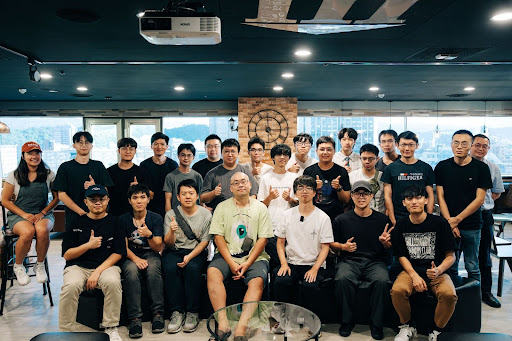
Can you tell us a bit about the project?
Apache Wicket is a component-oriented web framework for Java. Originally started by Jonathan Lock in 2004, Wicket became an Apache top-level project in June 2007. As of 2024, we released Apache Wicket v10 and it’s available for download.
What technology problem are you solving?
As a component-oriented framework, Wicket wants to promote the reuse and the modularization and testing of web code using Java features and idioms. Beside this common goal, Wicket stands out from the other component-oriented frameworks because it embraces the basic web technologies (i.e., HTML, JavaScript, and CSS) without trying to substitute them with custom markup or intermediate languages. Wicket will take care of orchestrating web resources for you, bridging the gap between web pages and your Java code.
With Wicket, Java developers have a reliable tool to make the most from modern JavaScript libraries and CSS frameworks. Simplicity is a cornerstone for the entire framework.
Why is this work important?
Building robust and maintainable web applications is not a trivial task. Wicket allows developers to reach these goals using just Java and other familiar tools from its ecosystem (like Apache Maven), without the burden of the complexity that comes with modern JavaScript development stack. This is particularly helpful for Java developers that might feel lost with modern web technologies and are not comfortable with the classic JavaScript-based SPA applications.
The ASF’s mission is to provide software for the public good. In what ways does your project embody the ASF mission and way?
Wicket really succeeded in embodying the ASF spirit of community-driven open source, meaning that the health of its community is fundamental to the project’s success. We pay great attention to community’s feedback and they are fundamental for us to decide which features to implement in the future releases.
Are there any use cases you would like to tell us about?
Wicket is widely deployed across numerous organizations worldwide, both public and private. A nice source to discover some use cases is https://builtwithwicket.tumblr.com/
Here are some of the things that contributors and users have to say about Apache Wicket:
“Apache Wicket allows Java developers to hit the road running towards building web applications.”, said Richard Eckart de Castilho, main developer of the INCEpTION project [1], “Apache Wicket has been a solid basis for our work for over a decade now, and we are looking forward to the next decade starting with the transition to Jakarta in the new release of Wicket 10.”
“Amongst the constant changes in frontend frameworks, Apache Wicket has remained a strong and stable development choice.” said Tim te Beek, Staff software engineer at Moderne.io and member of OpenRewrite [2] project, “And now with an automated migration to version 10 and Java 17, Wicket proves why it’s remained popular for so long.”
“Wicket is a joy to work with. Its component-oriented architecture enables efficient development of large codebases and, as a stable and mature framework, it ensures reliability and supports rapid iteration.” said Vit Rozkovec, co-founder & CTO of Latudio [3] and co-founder, Kusala Institute [4] ”With Wicket we can also have a unified codebase for front-end and back-end development, allowing full utilization of Java’s comprehensive toolset. We plan to continue leveraging Wicket for both ongoing and future projects.”
[1] https://inception-project.github.io
[2] https://docs.openrewrite.org
[3] https://www.latudio.com
[4] https://kusalainstitute.org
How can others contribute to this project – code contributions being only one of the ways?
People willing to help our project can interact with us through official mailing lists (users and dev lists) or GitHub profile (https://github.com/apache/wicket) to send pull requests and contribute to solving bugs or implementing new features.
All details to help Wicket can be found on our official site at https://wicket.apache.org/contribute/
Additional Apache Wicket Resources:
The ASF is home to nearly 9,000 committers contributing to more than 320 active projects. With the support of volunteers, developers, stewards, and more than 75 sponsors, ASF projects create open source software that is used ubiquitously around the world. This work helps us realize our mission of providing software for the public good.
This blog series aims to shine a spotlight on the projects that help make the ASF community vibrant, diverse, and long lasting. We want to share stories, use cases, and resources among the ASF community and beyond so that the hard work of ASF communities and their contributors is not overlooked.
If you are part of an ASF project and would like to be showcased, please reach out to markpub@apache.org.
Connect with ASF
- Follow us on social: X, LinkedIn, and YouTube
- Host a Project
- Become an ASF Sponsor
- Community Resources
- Attend Community Over Code


